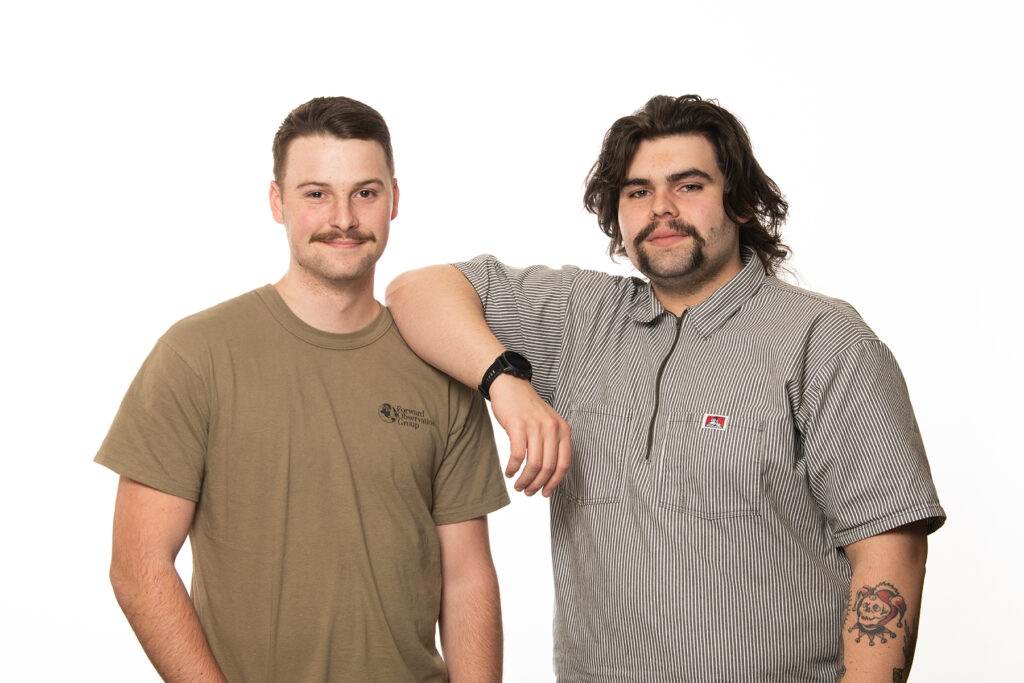Seventeen colleges and universities from across Oregon are participating in Invent Oregon — an event where the brightest and most innovative minds bring their ideas to life.
Invent Oregon provides a platform for students to create, build, present and market their creations, all while vying for $30,000 in cash prizes. After a year of workshops and semifinal competitions, the 2023 Invent Oregon Collegiate Challenge Finals will be held on June 22, 2023, in Portland; tickets are available on Eventbrite. The competition encourages participants to create a new technology or resource which addresses unsolved, real-world problems.
This year, teams Ancile Systems and HazzerCat Engineering from Rogue Community College will submit projects at Invent Oregon for the first time. Using their creativity and problem-solving skills to build a better future motivates the students to pursue new and different ideas.
“Invent Oregon is one of a few prototyping competitions for students,” said Dusty Rittenbach, science department chair at RCC. “It supports entrepreneurship and innovation, and pushes students to research what groups would use their products.”
In addition to fostering innovation and sparking ideas for a more sustainable future, Invent Oregon teaches students how to articulate a successful product pitch. The students learn valuable skills as they present their products to a professional panel, which includes businesspeople from Business Oregon and other well-known companies, such as Wells Fargo.
This year, two RCC teams will present unique ideas.
First, Ancile Systems — composed of mechanical engineering students Carter Stewart and Emmett Allen — will present the Automatic Field Tourniquet (AFT).

Carter and Emmett discovered a lack of accessibility in modern-day tourniquets, especially for the general public. Their new design will have a mechanically driven system that tightens with biometric readings.
“We think the AFT should be in arenas and schools, and included in first aid kits,” said Carter.
The idea for their improved tourniquet was inspired by a study that determined that only 10% of patients with traumatic bleeds had a tourniquet applied before arriving at the hospital. Patients with no tourniquet had a mortality rate of nearly 9%, but this dropped to 1% with a properly applied tourniquet.
Carter and Emmett believe their design will be easier to use and provide important medical data to emergency responders as a patient is transported to and arrives at the hospital. This will help decrease the overall mortality rate from traumatic bleeds.
Students Jason Tams and Jonathan Wright will also present their invention — the Omni-Charger — a device that acts like a phone, battery pack and GPS for emergency situations.

With this design, consumers will not have to worry about the battery running out, because there will be a solar cell on the top. The Omni-Charger will support a wide range of cable types and have a flashlight, to help with ease of use. To save energy and increase convenience, the battery pack will charge via solar power.
Invent Oregon attracts many students and encourages them to grow, learn and innovate.
“For me, it’s a combination of wanting to become a professional problem solver and a strong desire to make things,” said Carter.
A passion for learning how things work was a common motivation among the RCC students.
Dusty enjoys watching the students brainstorm ideas, build products and gain confidence as they learn how to pitch and market their ideas.
“The projects are always impressive, but what I love to watch is the commitment from the students,” he said.
